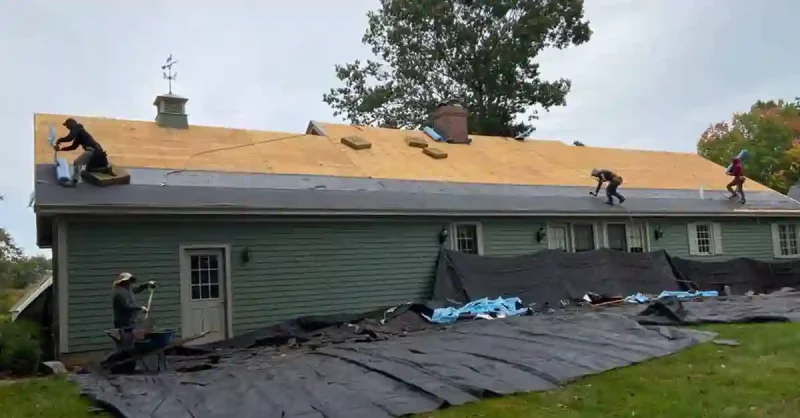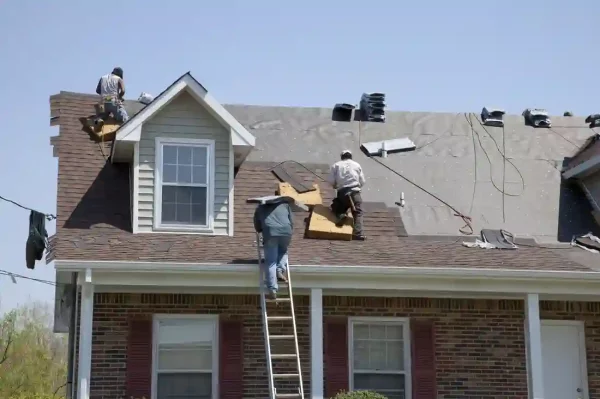Roofing repairs and replacements are major projects for any home. So, it’s important to make sure you work with a contractor that will do the job right and not leave you in financial turmoil or standing in puddles after it rains.
Finding the right contractor means more than just looking up their website or running them through various online sources. Here are the five things you should know before hiring a roofing contractor:
1. Experience
A contractor’s level of experience plays a big role in how well they complete a job. If they’ve worked on a lot of roofs, it means that they know what to look for and how to handle any issues that may arise.
It’s also important to find out how long they’ve been in business. This will give you an idea of how established they are and whether or not their company will still be around to honor any warranties if something goes wrong.
You should also ask for references from past clients. Contact them to see if they were satisfied with the work and to find out if they would hire the roofing contractor again. Also, avoid contractors who require payment in cash. This is a red flag and could indicate that they’re trying to scam you.
2. License
Most municipalities require a roofing contractor’s license. This is meant to protect homeowners and ensure that the contractors comply with all building codes, including proper installation of roof components such as flashing, which is where most leaks occur.
You should ask the contractor for their full company name and physical address. You can then run their name and address through various websites such as the Better Business Bureau and social media to find out any potential red flags.
Additionally, you should check to see whether they have a valid worker’s compensation policy and that their workers are covered by this policy. If they don’t, then you may have problems in the future if an employee gets hurt while working on your roof. The contractor should also be able to outline contingency plans in case obstacles arise that could impact the project’s completion time.
3. Insurance
Roofers should carry workers’ compensation and liability insurance to protect the homeowner in case of an accident. Workers’ comp covers medical bills and other expenses if a worker gets injured on the job, while liability covers damage caused by the roofing contractor during the repair or replacement process.
Errors and omissions insurance (also known as professional liability) is another important coverage for roofers to have. This policy protects them from legal action if clients claim they provided incorrect advice or workmanship.
Depending on how large the roofing business is, it may also be worthwhile for them to carry commercial property insurance and a tools and equipment floater (also known as an umbrella policy). Many small businesses can save money by purchasing these three coverage types together under one business owners policy (BOP). This helps lower the premium and increase the overall coverage limit.
4. Warranty
When hiring a roofing contractor, you’re going to want to make sure that they are reputable and offer a good warranty. Whether it’s manufacturer or workmanship, a solid warranty will give you peace of mind that your roof is protected for years to come.
Make sure you read both the manufacturers and workmanship warranties and understand their limitations before you hire a roofing contractor. Typically, manufacturers will only honor the warranty if it’s registered within a specific window of time. Also, beware of contractors that ‘race to the bottom’ based on price alone; they may not be around long enough to honor their warranty. Instead, opt for a contractor that requires regular maintenance and inspections to keep the warranty valid. This protects you and the contractor.
5. Reputation
One of the most important questions to ask a roofer is how long they have been in business. This will help you avoid shady contractors who race to the bottom on price and then disappear shortly after the job is done. This type of practice is unethical, and it leaves homeowners without a warranty in case something goes wrong.
A quality roofing company will have a great reputation and maintain high standards that go beyond Occupational Safety and Health Administration regulations. This includes covering live power lines, de-energizing buildings, and taking special precautions when working on rooftops with occupants living below.
Finding the right roofing contractor to work on your home can take some time and effort, but it’s well worth the investment for peace of mind and a long-lasting roof. Start your search by asking trusted friends and neighbors for recommendations or connecting with reputable roofing contractors through Modernize.


